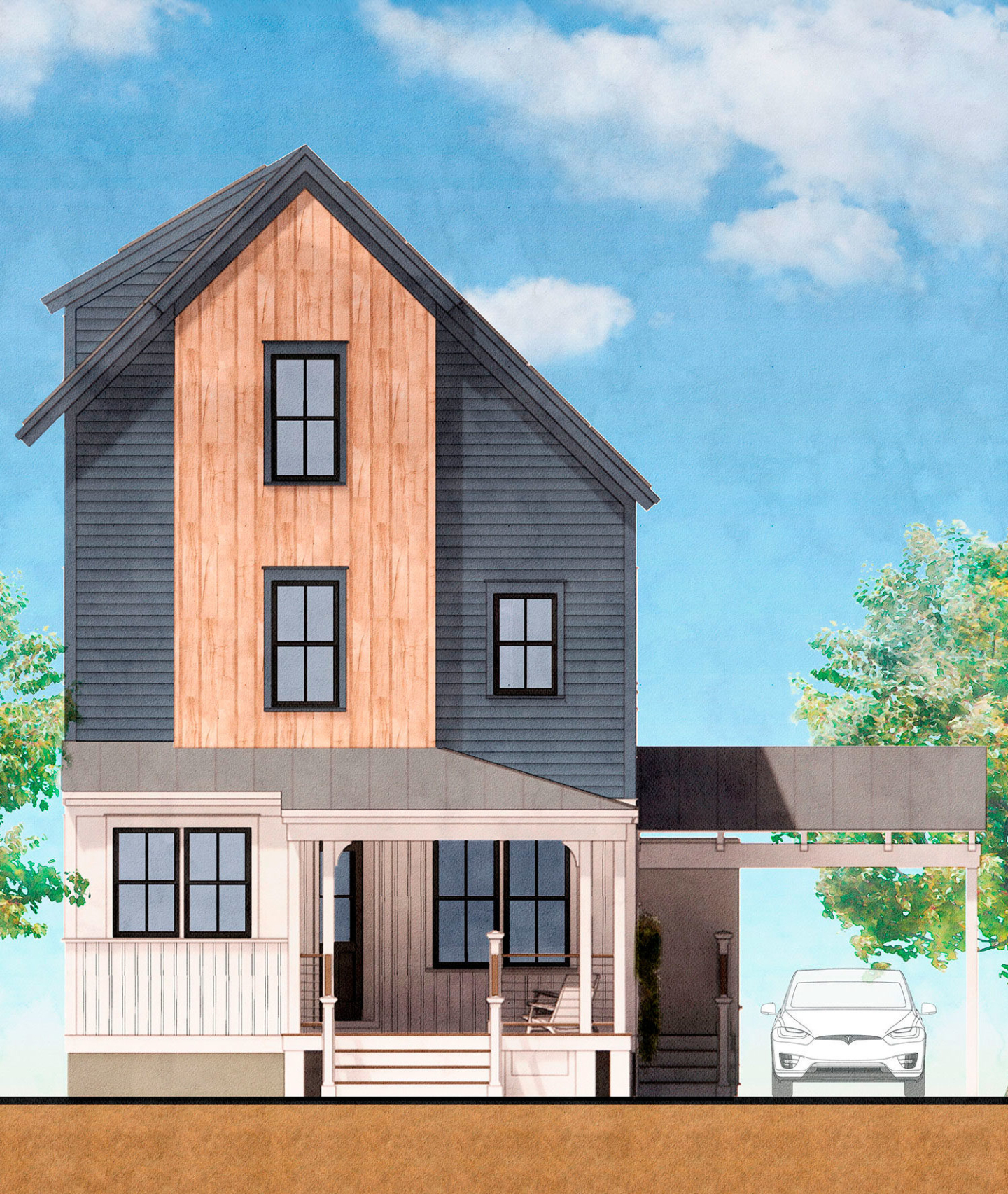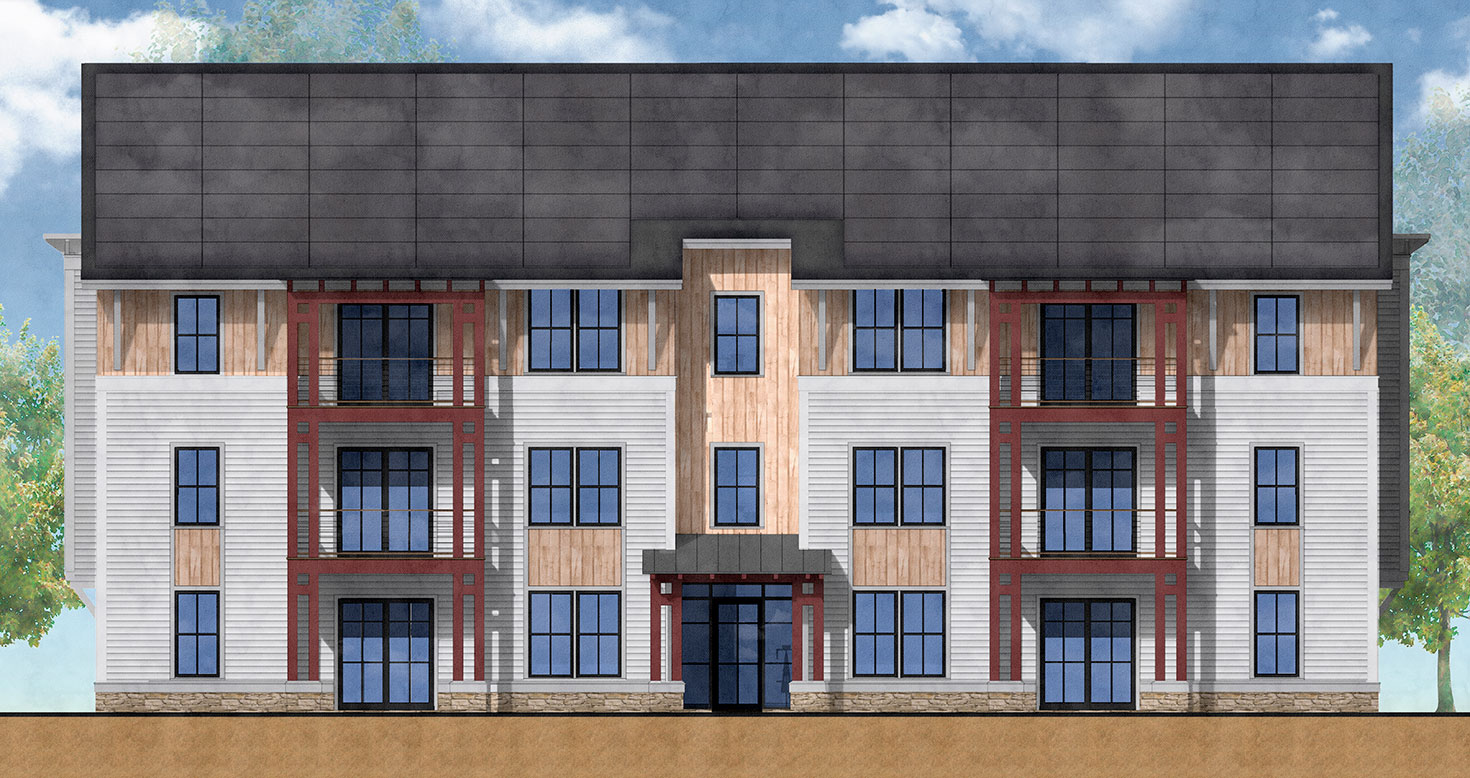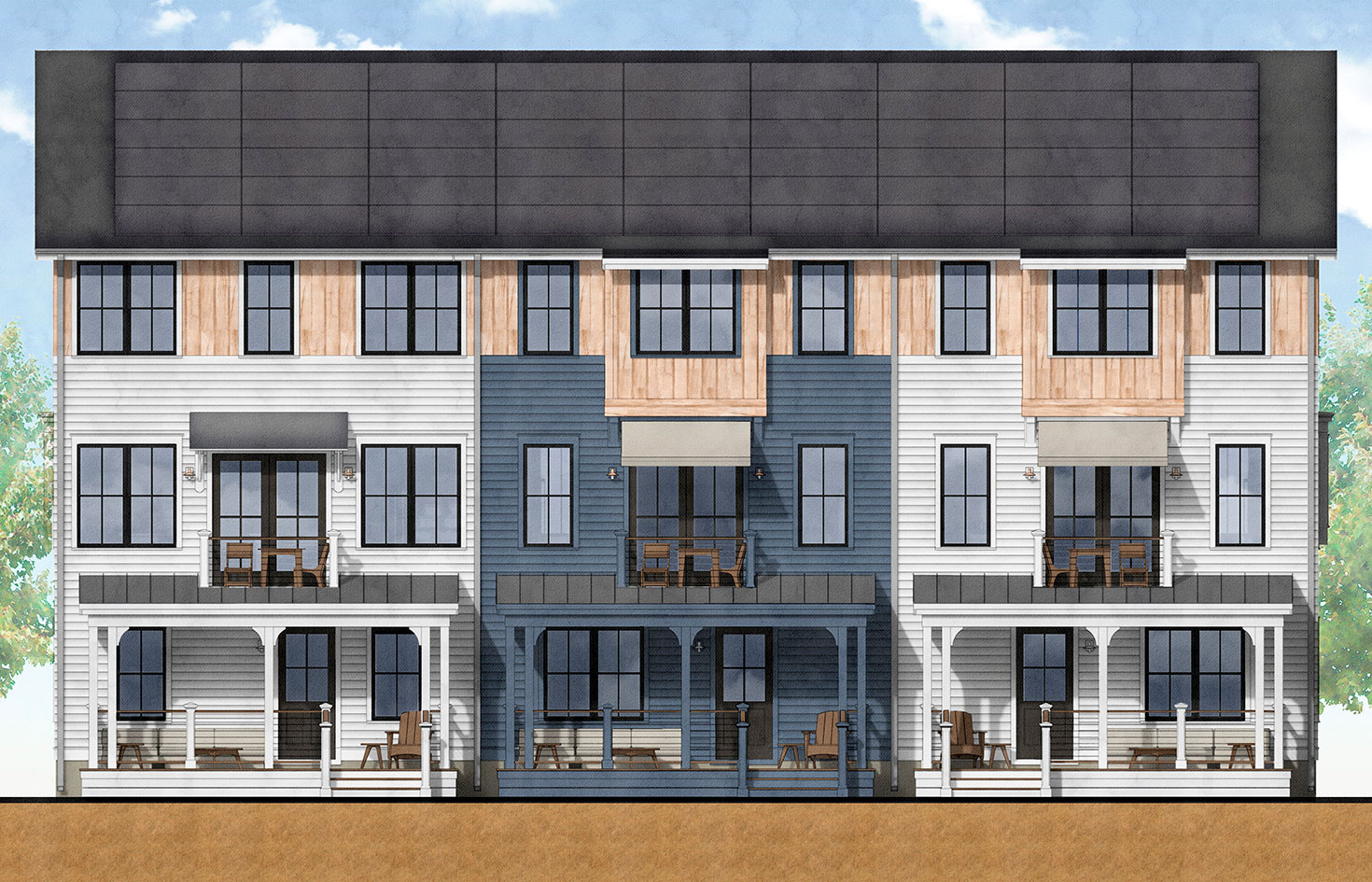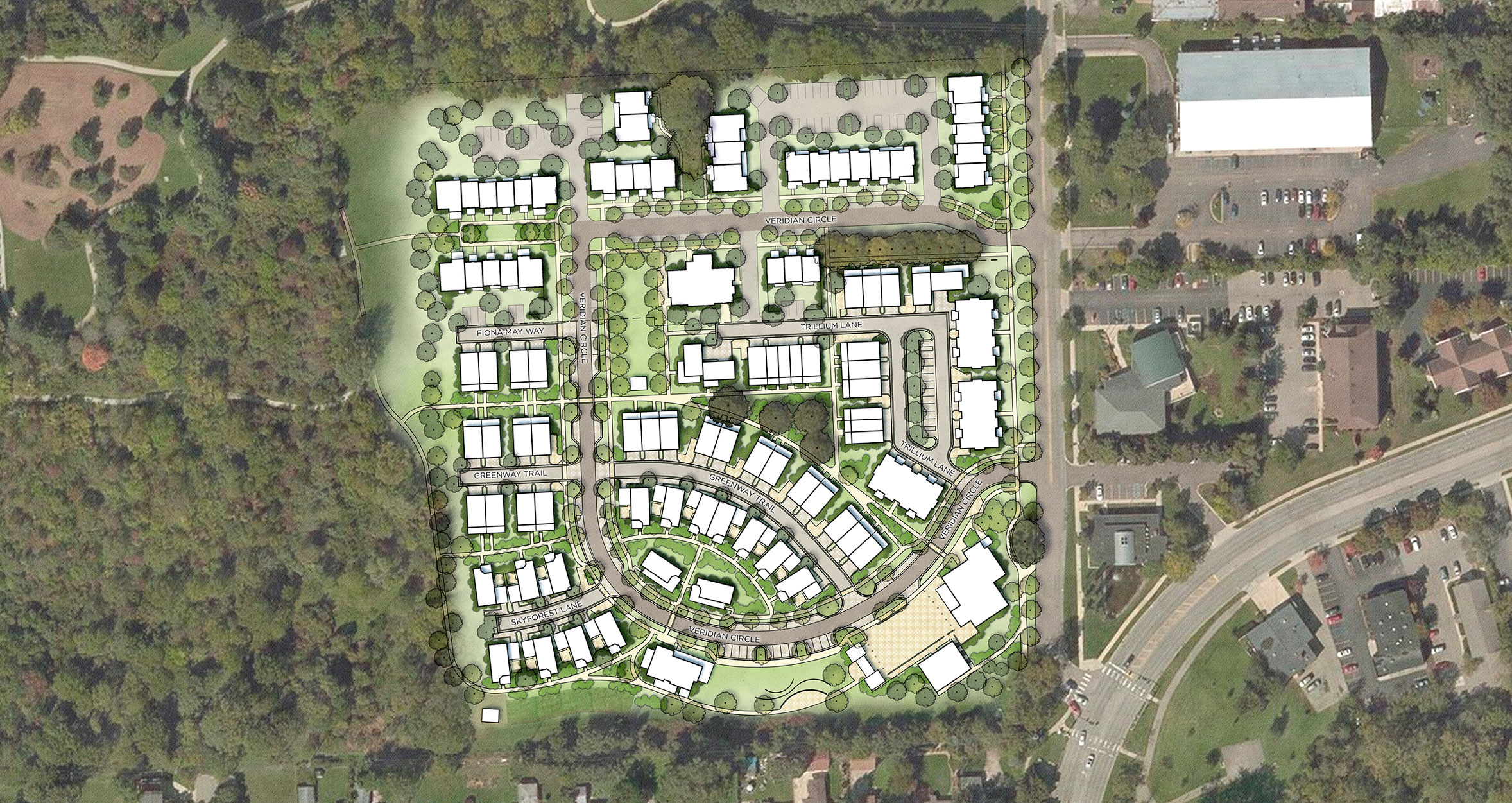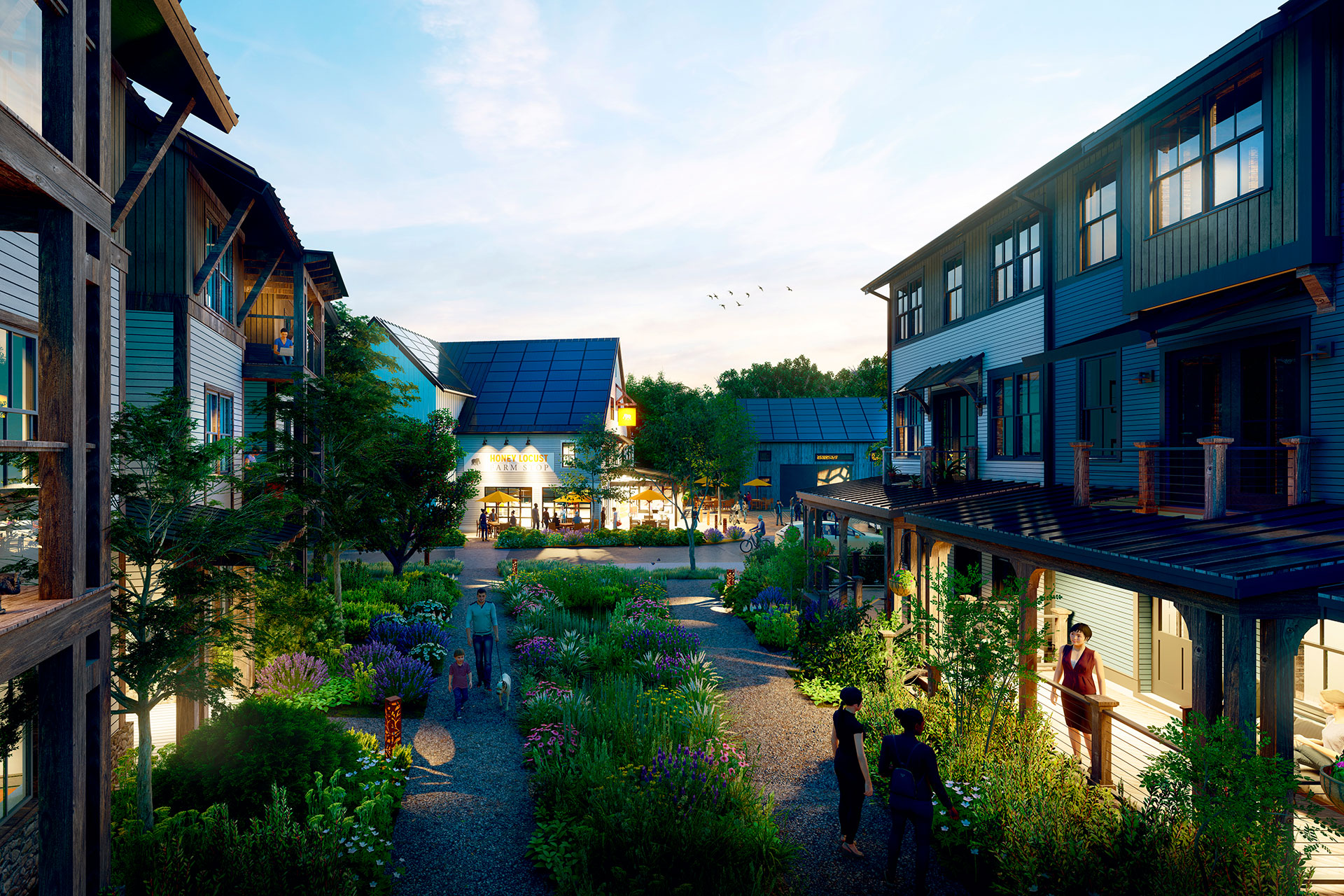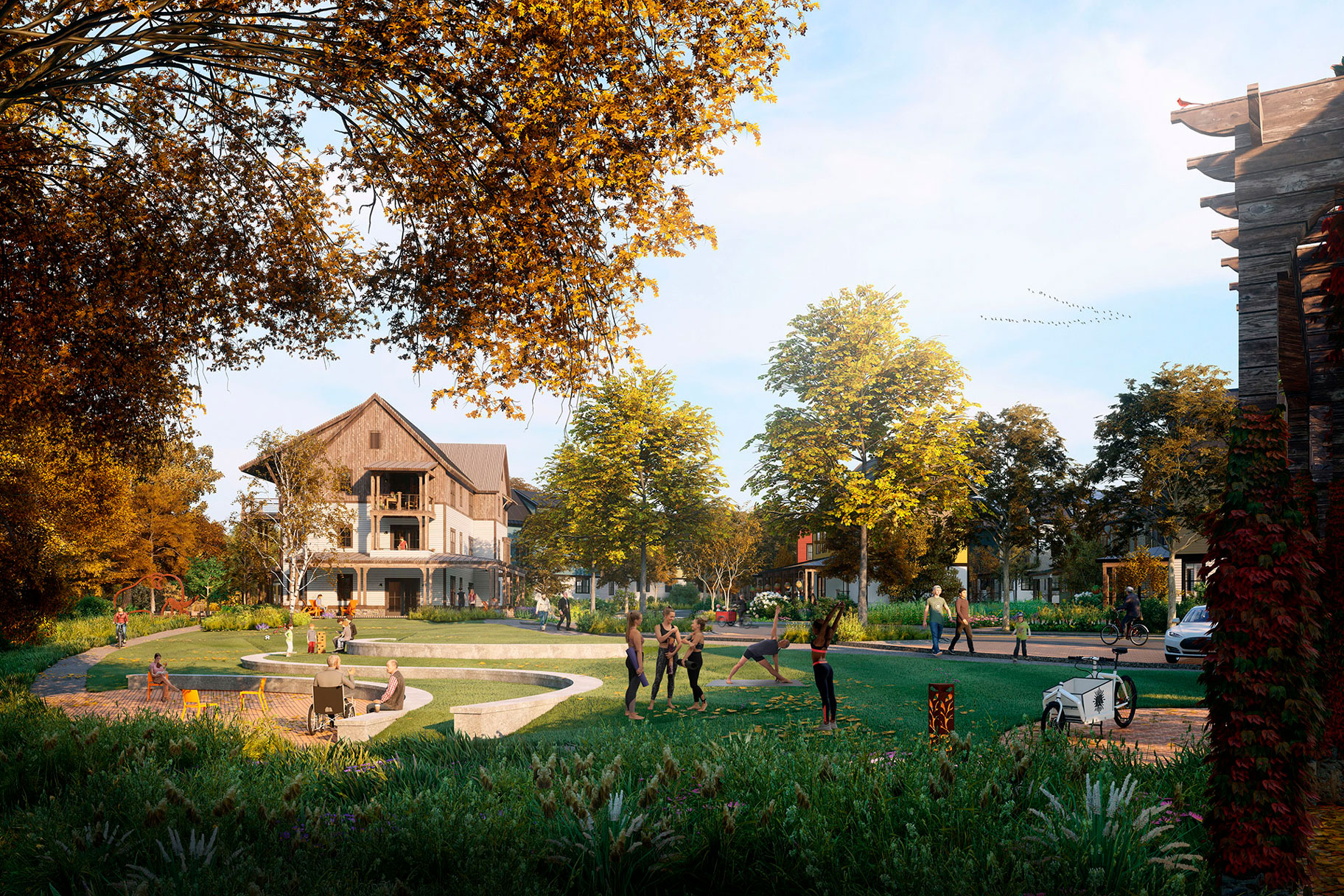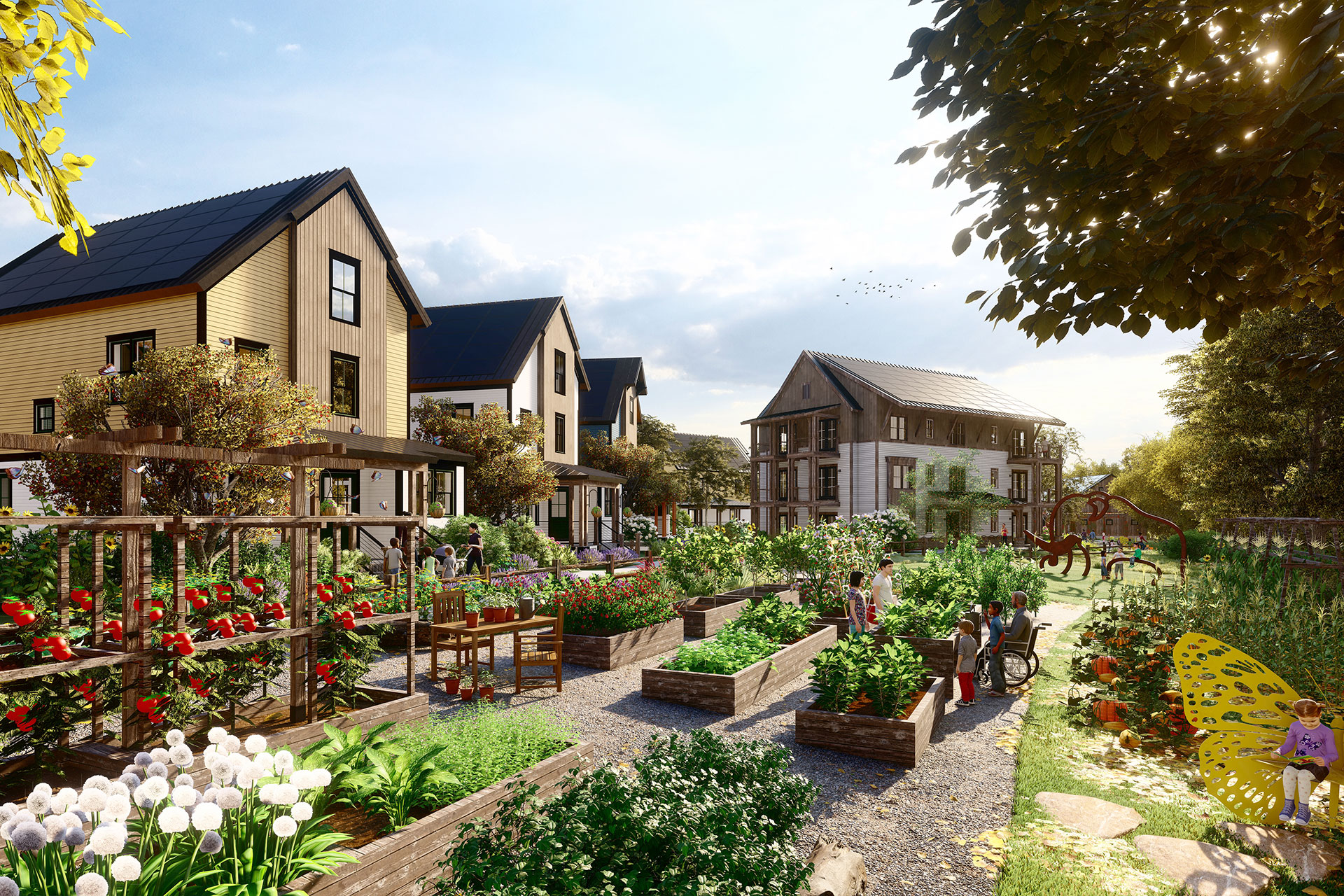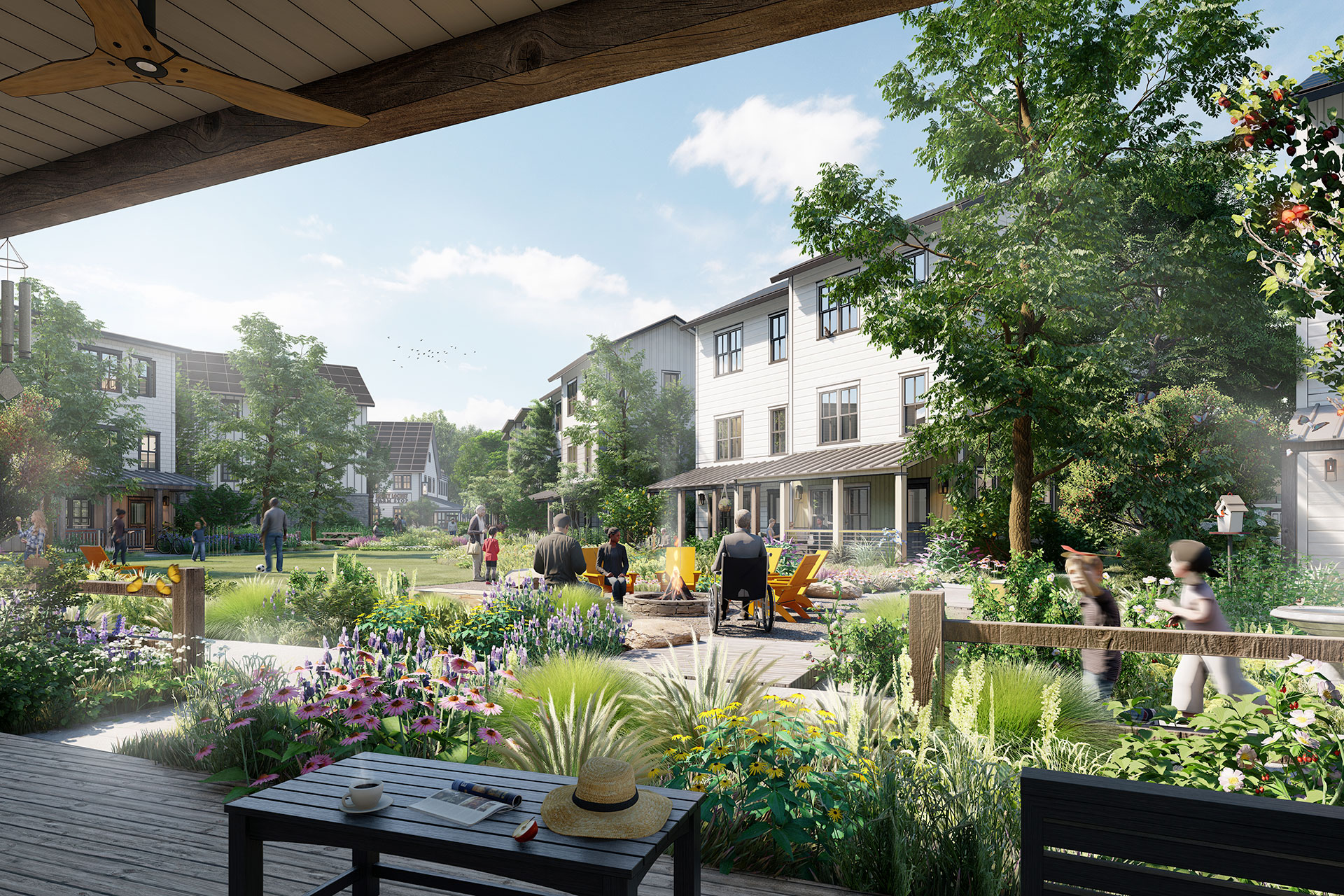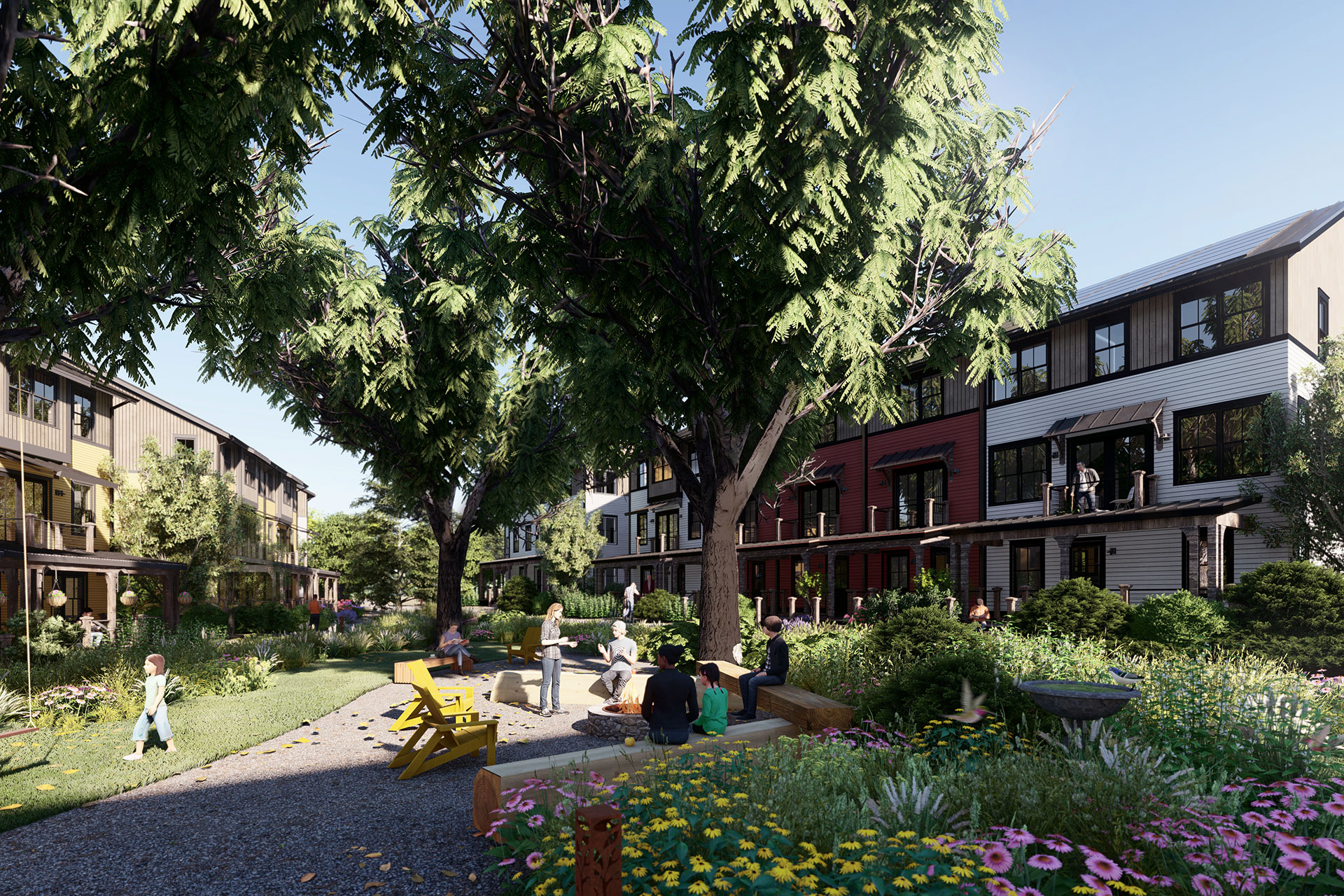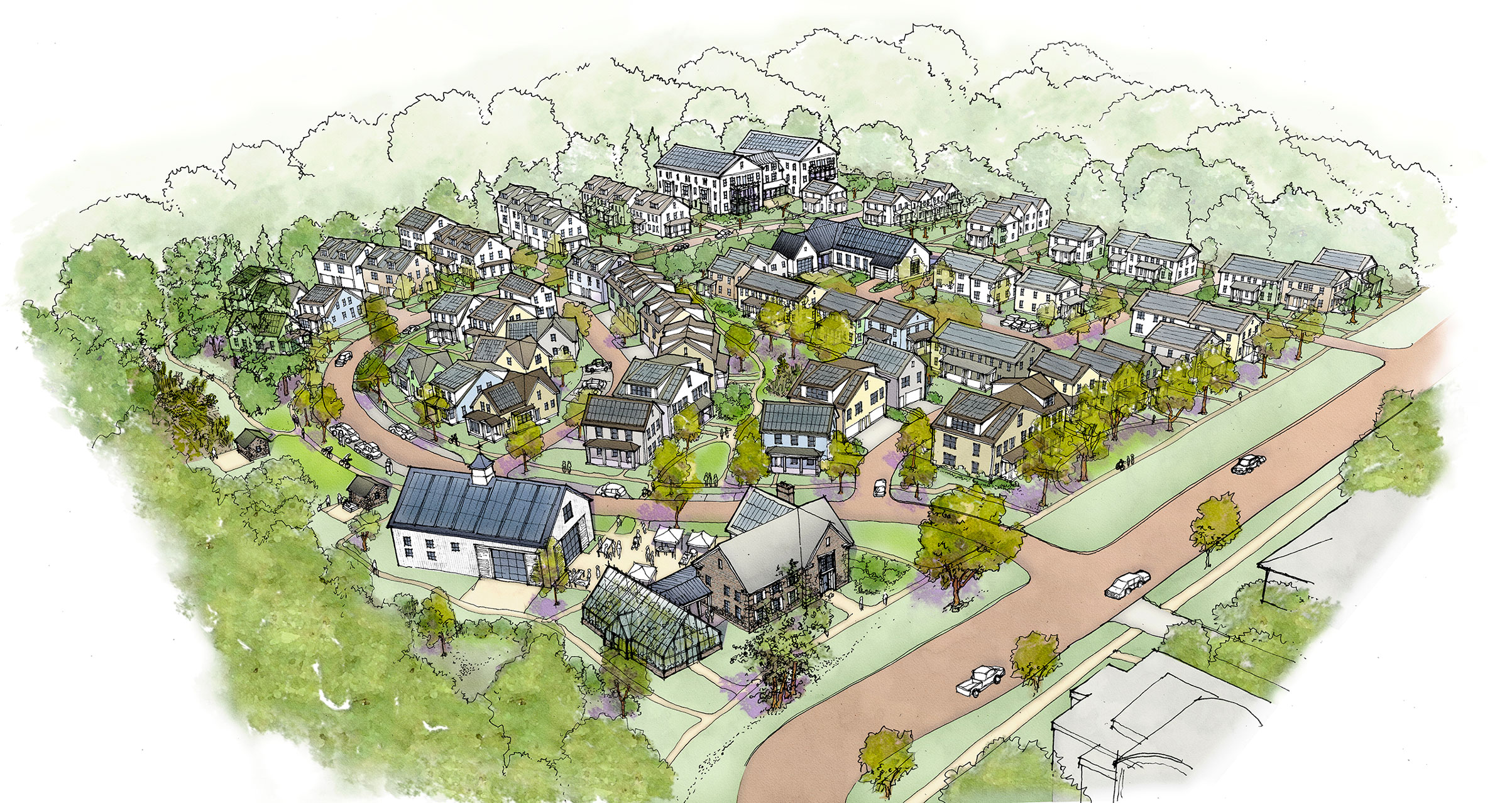Veridian’s holistic approach to sustainability in neighborhood planning is a paradigm shift that is critical to addressing the climate risks we face.
Veridian at County Farm is situated just southeast of downtown Ann Arbor at the edge of County Farm Park’s 130 acres of woods, lined trails, gardens, and playgrounds.
The neighborhood follows the principles of the International Living Future’s Living Community Challenge and include:
• 105% of the neighborhood’s energy demands produced by onsite solar and geothermal, with a battery backup to each home.
• Walkable and pedestrian-scaled infrastructure.
• Front porches opening out to green spaces that incorporate biophilic public art.
• Native landscaping that revives ecosystem health and treats stormwater, 30% of which will be dedicated to food production.
• Building materials that are selected based on durability, reduced reliance on toxic chemicals, and lower embodied carbon.
Veridian’s holistic approach to sustainability in neighborhood planning is a paradigm shift that is critical to addressing the climate risks we face. This approach starts with an urgent compassion towards the next generation and the environmental, economic, and social ecosystems that our present decisions impact. In addition to using metrics like the International Living Future’s Living Community Challenge master plan guidelines, ILFI’s Red List material guidance, and the DOE’s Net Zero Ready Homes standards, the team evaluates every design tradeoff against the question: how can this create the most good with the resources available? And, how will this help the project become a model and advocacy tool for others? Veridian has already impacted Ann Arbor’s parking minimums, sustainable building requirements, and state-wide energy policy. It was one of 17 projects that the United Nations recognized as a model for accelerating the Sustainable Development Goals.

